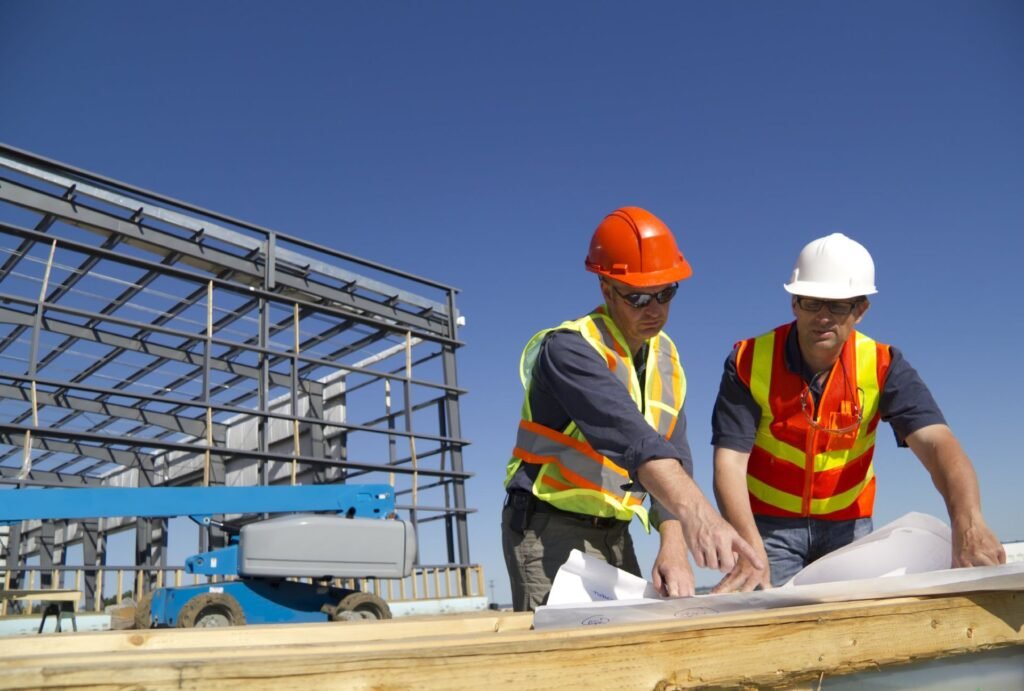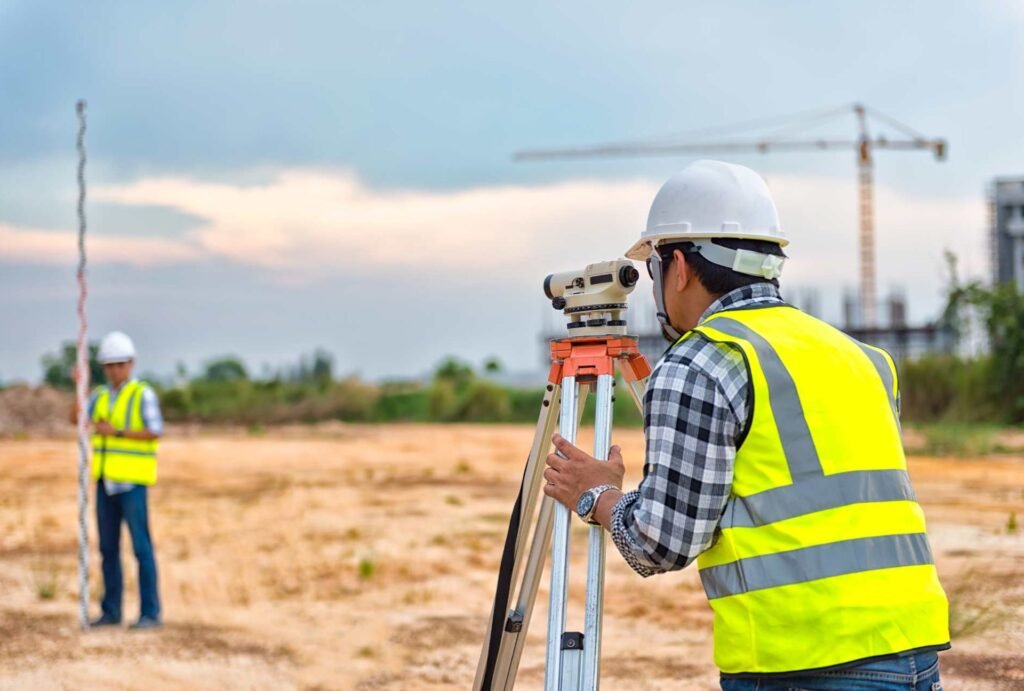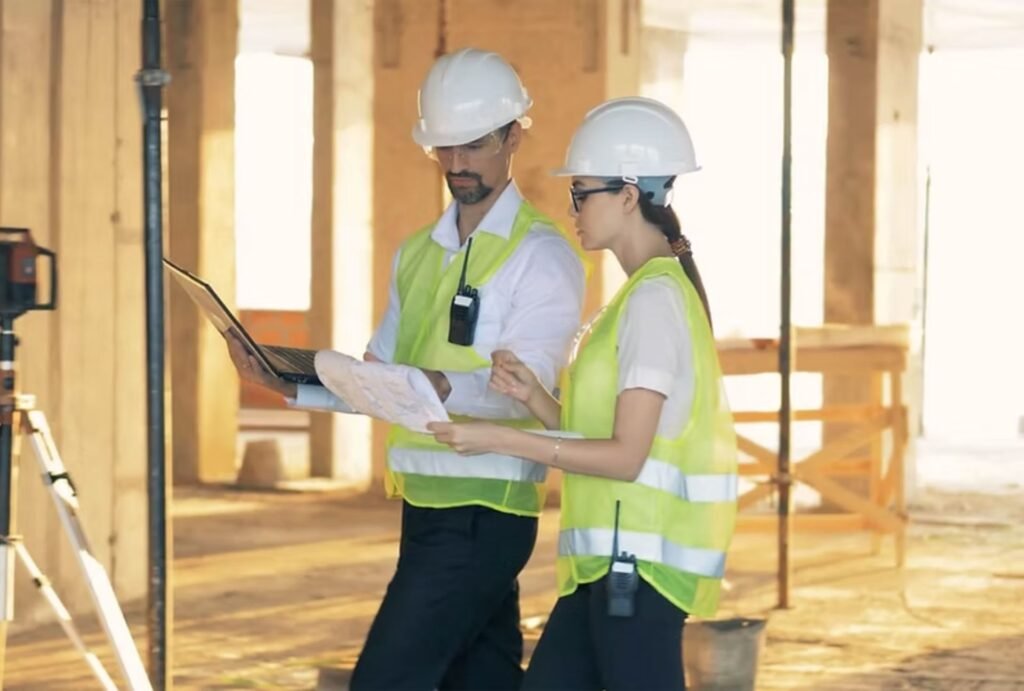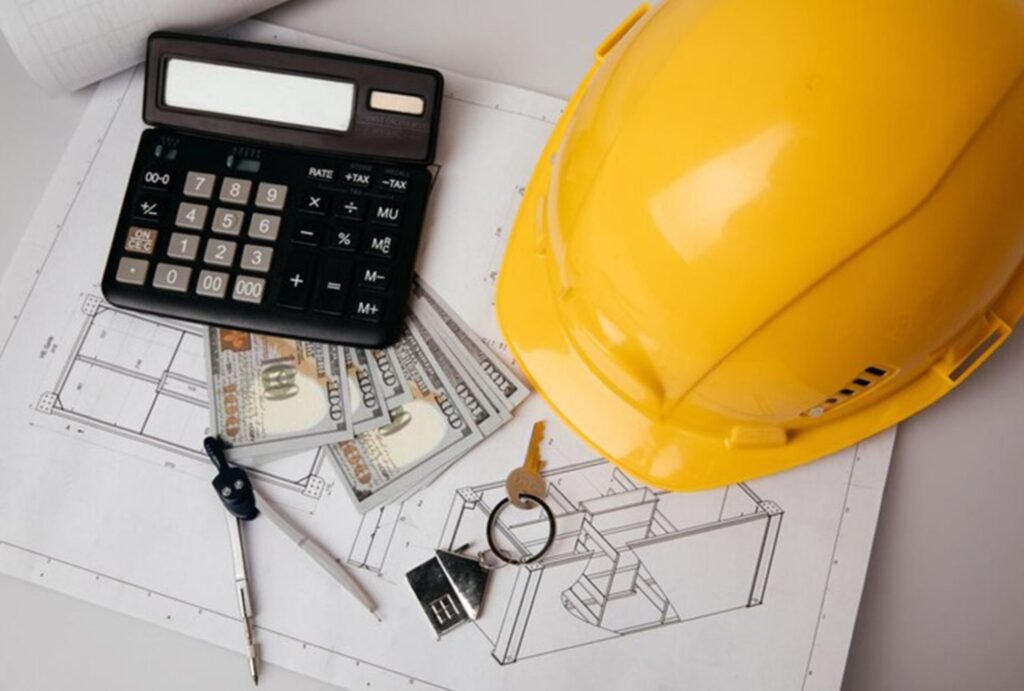Welcome to our complete guide on how to hire a quantity surveyor in New Zealand! Whether you’re planning a new build, renovation, or large-scale commercial project, managing costs effectively is crucial, and that’s where a quantity surveyor (QS) comes in. These professionals help with budgeting, cost estimation, contract negotiation, and overall financial planning, ensuring your project stays on track and within budget. But with so many options available, how do you find the right QS for your needs? In this guide, we’ll break down everything you need to know—from understanding their role and qualifications to where to find the best quantity surveyors in NZ and what questions to ask before hiring. By the end, you’ll be equipped with the knowledge to make an informed decision and ensure your construction project is in expert hands.
To hire a quantity surveyor in NZ, start by identifying your project needs and ensuring the professional is accredited by NZIQS or RICS. Look for experienced QS firms through industry directories, referrals, and online platforms, then review their qualifications, past projects, and client feedback. Request quotes, compare pricing structures, and conduct interviews to assess their expertise in cost estimation, contract management, and dispute resolution. Finally, formalize the agreement with a clear contract outlining services, fees, and deliverables to ensure smooth project execution and financial control.
Table Of Contents
What Does A Quantity Surveyor Do?
When embarking on a construction project, whether it’s a small residential build or a large-scale commercial development, managing costs effectively is crucial. This is where a Quantity Surveyor (QS) plays an essential role. These professionals specialize in cost estimation, budgeting, contract negotiation, and financial risk management, ensuring that projects stay within budget while maintaining quality and compliance.
A QS is not just a number cruncher—they are strategic advisors who help clients make informed financial decisions throughout the project lifecycle. From the early planning stages to the final completion, a QS ensures that every dollar is accounted for, ultimately helping stakeholders save both time and money. Below, we’ll explore the key responsibilities of a quantity surveyor and how their expertise benefits construction projects.
Defining The Role Of A Quantity Surveyor In The Construction Industry
A Quantity Surveyor (QS) is a construction cost consultant responsible for ensuring that a building project remains financially viable. They work closely with architects, engineers, contractors, and project owners to monitor expenses, prepare budgets, and manage contracts.
Their role extends beyond just number-crunching; they provide financial insights, risk analysis, and contractual advice to ensure that projects are executed smoothly. Whether it’s a residential home, commercial building, infrastructure project, or renovation, a QS helps control costs while maintaining high-quality construction standards.
Key Responsibilities Of A Quantity Surveyor
1. Cost Estimation And Budgeting
One of the primary duties of a QS is to estimate project costs accurately before construction begins. This involves.
- Conducting detailed cost analysis based on materials, labor, and overhead expenses.
- Preparing feasibility studies to assess whether the project is financially practical.
- Providing cost forecasts to help clients plan their budgets effectively.
Accurate cost estimation prevents unexpected expenses and ensures that the project stays financially stable from start to finish.
2. Contract Preparation And Negotiation
A QS plays a crucial role in drafting and negotiating contracts between stakeholders, including property owners, contractors, and suppliers. Their tasks include.
- Preparing contract documents that outline project scope, terms, and financial obligations.
- Ensuring that all agreements comply with New Zealand’s building regulations and legal standards.
- Negotiating with contractors and suppliers to secure the best possible pricing and terms.
Well-structured contracts protect clients from legal and financial disputes while ensuring smooth project execution.
3. Risk Management And Cost Control
Construction projects come with inherent financial risks, such as cost overruns, supply chain disruptions, and unexpected delays. A QS helps identify, assess, and mitigate these risks by.
- Monitoring project expenses in real-time to ensure financial efficiency.
- Identifying potential cost risks and providing solutions to minimize losses.
- Implementing cost-saving strategies without compromising on quality.
By proactively managing financial risks, a QS helps avoid budget overruns and ensures the project remains profitable.
4. Project Feasibility Assessments
Before a construction project even begins, a QS conducts feasibility studies to determine whether it is financially and practically viable. This involves.
- Evaluating site conditions, material availability, and labor costs.
- Providing clients with a detailed financial outlook on potential expenses.
- Advising on cost-effective alternatives to improve project efficiency.
Feasibility assessments ensure that clients invest in realistic and achievable projects while avoiding financial setbacks.
5. Final Accounts And Dispute Resolution
At the end of a project, a QS is responsible for finalizing all financial transactions and settling any disputes that may arise. Their responsibilities include.
- Preparing final accounts, ensuring that all costs align with the initial budget.
- Handling payment certifications for contractors and suppliers.
- Resolving contractual disputes, such as disagreements over payments or project scope.
Having a QS involved in the final stages of a project ensures that all financial matters are resolved smoothly, preventing post-construction disputes.
How A Quantity Surveyor Adds Value To Construction Projects
Hiring a Quantity Surveyor is a smart investment for any construction project. Their expertise in cost management, contract negotiation, and financial planning provides the following benefits.
- Prevents Cost Overruns: By providing accurate estimates and real-time budget monitoring, a QS ensures that unexpected expenses are minimized.
- Maximizes Financial Efficiency: A QS helps optimize resource allocation, ensuring that money is spent effectively without unnecessary waste.
- Reduces Legal And Contractual Risks: With well-prepared contracts and thorough financial documentation, clients are protected from disputes and legal complications.
- Enhances Project Feasibility: Through comprehensive feasibility assessments, a QS ensures that only financially viable projects move forward.
- Saves Time And Money: By streamlining financial processes and eliminating cost inefficiencies, a QS contributes to the project’s overall success.
A Quantity Surveyor is an indispensable asset to any construction project. Their ability to accurately estimate costs, manage risks, and oversee financial transactions ensures that projects stay on track and within budget. Whether you’re a homeowner, contractor, or developer, hiring a qualified QS in New Zealand can significantly improve your project’s financial success and overall efficiency.

Why Do You Need A Quantity Surveyor In NZ?
Hiring a Quantity Surveyor (QS) in New Zealand is one of the smartest decisions you can make for your construction project. Whether you’re building a new home, renovating a commercial space, or managing a large-scale development, a QS plays a crucial role in keeping costs under control, ensuring compliance with local laws, and preventing financial risks. Let’s explore the key reasons why a quantity surveyor is essential in NZ’s construction industry.
Cost Accuracy – Avoiding Budget Overruns
One of the biggest challenges in construction is staying within budget. Unexpected costs, material price fluctuations, and poor financial planning can quickly derail a project. A quantity surveyor ensures cost accuracy by.
- Providing Detailed Cost Estimates: Before construction begins, a QS conducts a thorough cost analysis, considering materials, labor, and potential risks.
- Identifying Hidden Costs: Many construction projects face unexpected expenses. A QS anticipates these costs and includes them in the budget, preventing nasty surprises.
- Monitoring Expenses Throughout The Project: A QS continuously tracks spending, ensuring the project remains within financial limits and advising on adjustments if necessary.
By having a quantity surveyor on board, you can avoid budget overruns and financial strain, ensuring a smooth and cost-efficient build.
Regulatory Compliance – Meeting New Zealand’s Building Laws
New Zealand has strict building codes and regulations, and failing to comply can lead to costly penalties, project delays, or even legal issues. A quantity surveyor ensures that your project aligns with NZ’s building laws, including.
- Building Act 2004 Compliance: Ensuring your project meets all structural and safety standards set by the New Zealand government.
- Local Council Regulations: QS professionals understand regional zoning laws and ensure that construction follows all local permit and consent requirements.
- Health & Safety Requirements: They help ensure compliance with WorkSafe NZ guidelines, minimizing workplace risks and liabilities.
With a QS managing compliance, you can proceed with confidence, knowing that your project meets all legal and regulatory requirements.
Dispute Resolution – Preventing Cost-Related Conflicts
Construction projects often involve multiple parties—contractors, suppliers, architects, and investors. Misunderstandings over costs, contracts, or unexpected expenses can lead to disputes, delaying progress and increasing stress. A quantity surveyor helps resolve financial disagreements efficiently by.
- Providing Clear, Transparent Cost Breakdown Reports: Ensuring all stakeholders understand the financial aspects of the project.
- Mediating Between Parties: Acting as an independent advisor to settle disputes before they escalate into legal battles.
- Managing Contractual Obligations: Ensuring all agreements are fair, legally binding, and financially viable for both parties.
Having a QS on board helps prevent unnecessary disputes, keeping the project moving forward smoothly without financial conflicts.
Optimized Budget Management – Maximizing Financial Efficiency
A well-managed budget is the key to a successful construction project. A QS plays a vital role in optimizing financial resources by.
- Ensuring The Best Use Of Funds: A QS helps prioritize spending, ensuring money is allocated to the most critical aspects of the project.
- Negotiating Better Prices With Suppliers & Contractors: Their industry knowledge allows them to secure cost-effective deals on materials and services.
- Preventing Overspending & Financial Waste: By constantly monitoring the budget, a QS ensures that no funds are wasted on unnecessary expenses.
Whether you’re handling a small renovation or a multi-million-dollar development, a QS ensures your project remains financially efficient and profitable.
Industry Expertise – Navigating NZ’s Construction Landscape
The construction industry in New Zealand is constantly evolving, with fluctuating material prices, labor shortages, and new regulatory updates. A quantity surveyor brings invaluable industry expertise by.
- Understanding Current Market Trends: A QS keeps up with NZ’s construction pricing, material costs, and labor rates, helping you plan effectively.
- Advising On The Best Procurement Strategies: Choosing the right contractors, suppliers, and procurement methods can save you time and money.
- Providing Data-Driven Financial Insights: They use real-time market data to make informed recommendations, helping you make smarter financial decisions.
By leveraging a QS’s industry expertise, you gain a competitive edge, ensuring your project is completed on time, within budget, and with the highest financial efficiency.
Hiring a Quantity Surveyor in NZ is not just about managing costs—it’s about maximizing efficiency, preventing financial risks, and ensuring long-term project success. From avoiding budget overruns and legal issues to resolving disputes and securing cost-effective deals, a QS is a valuable asset in any construction project.

Key Qualifications & Skills To Look For In A Quantity Surveyor
Hiring a Quantity Surveyor (QS) in New Zealand requires careful consideration of their qualifications, industry experience, and skill set. A well-qualified QS ensures that your construction project remains cost-effective, compliant, and efficient. Below, we’ll break down the essential qualifications, experience, and key skills to look for when choosing the right professional for your project.
Educational Background – Relevant Degrees & Certifications in NZ
A strong educational foundation is the first indicator of a qualified Quantity Surveyor. In New Zealand, professionals typically hold a Bachelor’s Degree in Quantity Surveying, Construction Economics, or Construction Management from a recognized institution. Some of the most reputable universities and polytechnics offering QS-related degrees include.
- Massey University: Bachelor of Construction (Quantity Surveying)
- Victoria University of Wellington: Bachelor of Building Science (Specializing in QS)
- Unitec Institute of Technology: Bachelor of Construction (QS Major)
- Ara Institute of Canterbury: Bachelor of Construction Management
Aside from formal education, many QS professionals further their expertise through certifications and professional development programs. Some noteworthy qualifications include.
- New Zealand Diploma in Quantity Surveying (for entry-level roles)
- RICS Accreditation (Royal Institution of Chartered Surveyors)
- NZIQS Membership (New Zealand Institute of Quantity Surveyors)
- Postgraduate Certifications in Construction Law or Cost Management
These qualifications ensure that the QS understands cost estimation, budgeting, and project financial management, which are critical for any construction project in New Zealand.
Industry Experience – Why Local Construction Knowledge Matters
While a degree or certification provides a solid theoretical foundation, real-world industry experience is what makes a QS truly effective. Hiring a QS with hands-on experience in the NZ construction industry is crucial because.
- They Understand Local Building Codes & Regulations: New Zealand has strict building standards and compliance requirements. A QS with local experience will be well-versed in these rules and can help prevent costly legal issues.
- They Are Familiar With Market Rates: Material and labor costs fluctuate based on location. A QS who has worked on multiple NZ projects will have a realistic understanding of pricing, helping you avoid overpaying.
- They Can Handle Unpredictable Challenges: Construction projects are often affected by weather, supply chain issues, and contractor disputes. An experienced QS can anticipate problems and adjust budgets accordingly.
- They Have Established Industry Connections: A well-connected QS can negotiate better deals with suppliers, contractors, and service providers, saving you time and money.
When vetting a QS, always ask for examples of past projects, preferably in a similar scale and scope to your own. Request references from past clients to gain insights into their reliability and professionalism.
Licensing & Registration – Ensuring Professional Credibility
Before hiring a Quantity Surveyor in New Zealand, it’s essential to verify their professional licensing and affiliations. The two most important accreditations to check for are.
1. New Zealand Institute of Quantity Surveyors (NZIQS) Membership
NZIQS is the leading professional body for QS professionals in New Zealand. A registered member of NZIQS adheres to industry best practices and ethical standards. You can verify a QS’s membership by checking the NZIQS website directory or asking them for their membership ID.
2. Royal Institution of Chartered Surveyors (RICS) Accreditation
QS professionals with RICS accreditation are recognized globally for their expertise in cost management and construction consultancy. While not mandatory in New Zealand, RICS accreditation adds credibility and demonstrates international competence.
A QS who is licensed and registered with professional bodies is more likely to deliver high-quality, compliant, and ethical services.
Soft Skills to Consider When Hiring a QS
Technical expertise is only part of the equation when hiring a QS. They must also possess strong interpersonal and problem-solving skills to handle complex construction projects effectively. Here are the top soft skills to look for.
1. Strong Analytical Thinking
A QS must analyze financial data, project costs, and risk factors to ensure a project remains within budget. Their ability to forecast potential issues and suggest solutions is crucial to preventing financial overruns.
2. Negotiation Skills
A skilled QS can negotiate better contract terms with suppliers, contractors, and stakeholders. Their role involves securing the best prices for materials and labor while ensuring fair agreements for all parties involved.
3. Attention to Detail
Construction projects involve complex contracts, cost breakdowns, and compliance regulations. A QS must catch potential errors in estimates, invoices, or agreements to avoid costly mistakes. Their keen attention to detail ensures accurate cost assessments and legal compliance.
4. Communication & Teamwork Abilities
A QS works with architects, engineers, contractors, and project owners, making effective communication essential. They must translate technical financial data into easy-to-understand reports and collaborate effectively with different teams to ensure smooth project execution.
Hiring the Right QS for Your Project
When hiring a Quantity Surveyor in New Zealand, consider both their technical qualifications and soft skills. Look for professionals with a solid educational background, local industry experience, relevant licensing, and strong problem-solving abilities. By choosing a well-qualified QS, you ensure your construction project stays cost-efficient, compliant, and well-managed from start to finish.

How To Find And Hire A Quantity Surveyor In NZ
Hiring the right Quantity Surveyor (QS) in New Zealand is essential to keeping your construction project on budget, on time, and legally compliant. Whether you’re a homeowner planning a renovation or a developer working on a large-scale project, knowing where to find and how to vet a QS can save you from costly mistakes. Below, we break down the best places to search for a qualified QS and the key steps to vet potential candidates to ensure you hire the right professional for your needs.
Where To Look For A Quantity Surveyor?
Finding a skilled Quantity Surveyor in NZ requires a strategic search in reliable sources where professionals list their services or are recommended based on expertise. Here are the top places to look.
Professional Associations – NZIQS Website & RICS Database
The New Zealand Institute of Quantity Surveyors (NZIQS) and the Royal Institution of Chartered Surveyors (RICS) are two of the most recognized professional organizations in the industry. These platforms list qualified and accredited QS professionals, ensuring that those you hire meet strict industry standards.
How To Use These Platforms
- Visit and browse their member directory for verified QS professionals.
- Use the RICS database to find internationally recognized quantity surveyors in New Zealand.
- Check if the QS is a registered member, which indicates higher credibility, experience, and adherence to ethical practices.
Online Platforms – LinkedIn, Seek, And TradeMe Jobs
In today’s digital world, many professionals showcase their expertise on job boards and professional networking platforms. These are great places to find independent quantity surveyors or firms actively offering services.
Best Platforms To Search
- LinkedIn: Search for “Quantity Surveyor NZ” and review profiles, recommendations, and endorsements from past clients.
- Seek.co.nz: Many QS firms and freelancers advertise their services on New Zealand’s top job platform.
- TradeMe Jobs: Browse listings under “Construction & Surveying” to find professionals available for hire.
Always check a QS’s LinkedIn profile for endorsements, recommendations, and work history to verify their experience and credibility.
Word Of Mouth – Recommendations From Builders And Architects
One of the most reliable ways to find a reputable Quantity Surveyor in NZ is through word-of-mouth recommendations. Builders, architects, and project managers frequently work with QS professionals and can suggest trusted experts.
Who To Ask?
- Local Builders & Contractors: They often collaborate with QS professionals and can recommend someone experienced in your type of project.
- Architects & Engineers: Since they work alongside QS professionals, they can suggest reliable experts with a strong track record.
- Friends & Colleagues: If you know someone who recently completed a construction project, ask who managed their cost estimation and budgeting.
Personal recommendations help you avoid unverified or inexperienced QS professionals, ensuring a trustworthy hire.
Local Construction Firms – Companies Specializing In Quantity Surveying
Some construction and consulting firms in NZ specialize in quantity surveying services, making them a great option if you’re looking for an established company rather than an independent QS.
How To Find Them
- Search for “Quantity Surveying Firms NZ” on Google and review their websites.
- Check client reviews and project case studies to assess their expertise.
- Visit local business directories like the Yellow Pages NZ to find QS firms near you.
If hiring a QS from a firm, ensure you meet the individual who will handle your project and confirm their direct experience and credentials.
How To Vet Potential Candidates?
Once you’ve found potential quantity surveyors, the next step is vetting them to ensure they are qualified, reliable, and a good fit for your project. Here’s how.
Check Credentials – Verify Their Education And NZIQS Membership
Not all quantity surveyors have the same level of expertise and accreditation. Always verify their qualifications before hiring.
Key Things To Check
- Degree In Quantity Surveying Or Construction Management: Ensure they hold a relevant degree from a recognized university or technical institute.
- NZIQS Membership: This guarantees they adhere to industry standards and ethical practices.
- RICS Accreditation (Optional But Beneficial): If they are RICS-certified, it shows they meet global standards of quantity surveying.
You can verify NZIQS membership directly on their website to confirm their registered status.
Review Past Work – Ask For Project Portfolios Or Case Studies
A reputable QS should be able to showcase past projects that demonstrate their experience, problem-solving abilities, and expertise.
How To Assess Their Work
- Ask for a portfolio of completed projects, especially those similar to yours.
- Look for cost-saving strategies they implemented in past projects.
- If they have an online presence, check client testimonials or Google reviews.
A strong portfolio is a good indicator of a proactive and results-driven quantity surveyor.
Conduct Interviews – Prepare Key Questions To Assess Expertise
Before making a final decision, interview at least 2-3 quantity surveyors to compare their approach and expertise.
Essential Questions To Ask
- How long have you worked as a Quantity Surveyor in NZ?
- Have you worked on similar projects before?
- What is your cost estimation process, and how do you ensure accuracy?
- How do you handle budget overruns and disputes?
- What is your pricing structure – hourly, fixed fee, or percentage-based?
- Can you provide examples of cost-saving measures you’ve implemented in past projects?
- Do you work independently, or are you part of a QS firm?
The best QS professionals will have clear, confident answers and provide real-life examples to back up their expertise.
Ask For References – Speak With Past Clients For Feedback
A great way to verify a QS’s reliability is by speaking directly with their past clients.
How To Get Useful Feedback
- Request at least 2-3 references from previous clients.
- Ask about communication skills, accuracy in cost estimation, and overall reliability.
- Find out if the QS helped stay within budget and resolve financial disputes effectively.
If a QS hesitates or refuses to provide references, consider it a red flag and look for someone more transparent.
Hiring the right Quantity Surveyor in NZ is a critical step in ensuring financial control, cost efficiency, and smooth execution of your construction project. By searching in trusted sources, checking credentials, and vetting candidates thoroughly, you can find a qualified, reliable QS who will help keep your project on budget and on track.

Understanding Quantity Surveyor Costs In NZ
When planning a construction project, budgeting accurately is essential to avoid unexpected costs and financial strain. A Quantity Surveyor (QS) plays a crucial role in managing your budget, but understanding their pricing structure is key to making informed decisions. In New Zealand, QS fees vary based on project size, complexity, location, and scope of services required. This section will break down the different pricing models, expected cost ranges, and factors that influence QS fees, helping you budget effectively for your project.
How QS Pricing Works
Quantity Surveyors in NZ typically charge clients based on one of three pricing models.
1. Hourly Rates
Many QS professionals charge by the hour, particularly for consultations, smaller projects, or ad-hoc services.
- Average hourly rate: $100 – $250 per hour
- Best for: Small-scale work, one-off consultations, or when project scope is uncertain
Hourly pricing allows flexibility but can make budgeting unpredictable if a project requires more time than anticipated.
2. Fixed Fees
For well-defined projects, a QS may offer a fixed fee that covers their services from start to finish.
- Typical range: $1,500 – $10,000+ (depending on project size)
- Best for: Residential builds, renovations, and smaller commercial projects with clear scopes
Fixed pricing gives you cost certainty, making it easier to plan your budget without unexpected expenses.
3. Percentage Of Project Cost
For larger projects, some QS professionals charge a percentage of the total construction cost.
- Typical range: 1% – 5% of the total project value
- Best for: Large commercial developments, infrastructure projects, or high-budget builds
This model aligns the QS’s payment with the project’s total cost, meaning their fee increases if the project cost rises.
Typical Cost Range In NZ (Rough Estimates For Different Project Sizes)
The cost of hiring a QS in New Zealand varies depending on the type and size of the project.
- Small Residential Renovation (e.g., Kitchen or Bathroom Remodel): $1,500 – $3,000
- New Home Build (Standard Single-Story House): $3,000 – $8,000
- Larger Residential Homes (Multi-Story, High-End Finishes): $8,000 – $15,000
- Small to Mid-Sized Commercial Projects: $10,000 – $50,000
- Large Commercial Developments & Infrastructure Projects: 1% – 5% of the total project cost
These are rough estimates, and actual costs depend on the scope of work and specific requirements of your project.
Factors Affecting QS Fees
Several key factors influence the cost of hiring a Quantity Surveyor in NZ.
1. Project Complexity
The more complex a project, the higher the QS fee.
- Simple projects (e.g., standard residential homes) require basic cost estimation and contract management.
- High-end builds or commercial projects involve detailed cost analysis, risk assessment, and contract negotiations, which increase QS fees.
2. Location (Auckland Vs. Regional Areas)
- QS services in Auckland tend to be more expensive due to higher demand, cost of living, and the scale of projects in the city.
- Regional areas (e.g., Waikato, Bay of Plenty, South Island) generally have lower QS rates, but availability of professionals may be limited.
3. Scope Of Services Required
QS fees depend on how involved they are in your project.
- Basic services (Cost estimation, budgeting only) = Lower fees
- Full-service QS (Project cost control, contract negotiation, dispute resolution) = Higher fees
If you only need a one-time cost estimate, you’ll pay significantly less than if you require end-to-end QS support throughout the entire project.
Understanding Quantity Surveyor costs in NZ helps you plan your construction budget more effectively. Whether you’re renovating a home, building a new property, or managing a large commercial project, choosing the right pricing model and understanding cost factors ensures you get the best value from your QS. To get an accurate quote, always compare multiple QS professionals, check their experience, and clarify what services are included in their fees.

Common Mistakes To Avoid When Hiring A Quantity Surveyor
Hiring a Quantity Surveyor (QS) is a crucial step in ensuring your construction project stays within budget and runs smoothly. However, many people make avoidable mistakes during the hiring process, which can lead to financial setbacks, project delays, and unnecessary stress. Below are some of the most common pitfalls to watch out for when choosing a QS in New Zealand—and how to avoid them.
Hiring Based on Cost Alone – Cheaper Isn’t Always Better
It’s tempting to choose a quantity surveyor purely based on the lowest bid, but this can be a costly mistake in the long run. While budgeting is essential, selecting a QS based on price alone can mean compromising on experience, quality, and reliability.
Why It’s a Mistake
- A low-cost QS may lack the expertise needed for accurate cost estimation and financial planning.
- They might overlook critical details, leading to budget overruns and unexpected costs.
- Less experienced QS professionals may not have strong negotiation skills, which can impact contract terms with contractors and suppliers.
How to Avoid It
Instead of looking for the cheapest option, focus on value for money. Review their qualifications, past work, and client feedback before making a decision. A slightly higher fee for a skilled QS can save you thousands of dollars in potential project mismanagement.
Not Checking References Or Credentials – Risking Inexperience
A QS can look great on paper, but without proper verification, you could end up hiring someone who lacks the experience and skills necessary for your project. Checking their credentials, certifications, and past work is essential to ensure they meet industry standards.
Why It’s a Mistake
- Without proper credentials, a QS may not follow New Zealand’s building regulations and cost-control standards.
- If they lack experience in your specific project type, they may struggle with accurate budgeting and risk assessment.
- A lack of positive client reviews or testimonials could indicate poor performance or reliability.
How to Avoid It
Always verify that the QS is registered with NZIQS (New Zealand Institute of Quantity Surveyors) or RICS (Royal Institution of Chartered Surveyors). Additionally, ask for case studies, project portfolios, and references from previous clients to confirm their expertise. A trustworthy QS should have a track record of successful projects.
Failing To Define Project Scope Clearly – Leading To Misaligned Expectations
One of the biggest causes of disputes in construction projects is unclear project scope. If you and your QS are not aligned on project expectations, budgeting, and deliverables, it can lead to miscommunication, delays, and budget overruns.
Why It’s a Mistake
- A QS working with vague project details will struggle to provide accurate cost estimates.
- Undefined expectations can lead to unexpected additional costs due to overlooked aspects of the project.
- Misalignment between the client and QS can cause delays, rework, and frustration for all parties involved.
How to Avoid It
Before hiring a QS, clearly outline your project scope. Provide details on budget constraints, timelines, materials, and project complexity. A good QS will ask detailed questions to ensure they fully understand your needs before providing an estimate. Having a well-documented agreement with defined deliverables can help prevent any confusion later.
Ignoring Communication Style – A QS Must Be Easy To Work With And Responsive
A quantity surveyor is not just a number cruncher—they play a vital role in negotiations, decision-making, and project coordination. If your QS lacks strong communication skills, misunderstandings and conflicts can arise, leading to project inefficiencies.
Why It’s a Mistake
- A QS who is slow to respond can delay key project decisions, affecting construction timelines.
- Poor communication can result in misinterpreted cost estimates and budgeting errors.
- If they struggle to explain financial reports or contract terms in a clear manner, it can leave you confused and misinformed.
How to Avoid It
During the hiring process, pay attention to how quickly and clearly the QS communicates. Are they responsive to emails and phone calls? Do they explain complex terms in an understandable way? A reliable QS should be proactive, approachable, and transparent about project finances and expectations.
Hiring a quantity surveyor in New Zealand is a significant decision that can make or break your construction project’s budget. Avoiding these common mistakes—choosing based on cost alone, failing to check credentials, not defining project scope, and overlooking communication skills—will help ensure a smooth and efficient process.
By taking the time to vet candidates carefully, verify their expertise, and establish clear expectations, you’ll be better positioned to work with a QS who can deliver real value, accuracy, and cost efficiency for your project.
Finding the right Quantity Surveyor can make all the difference in keeping your construction project on time and within budget. Whether you’re planning a residential build, commercial development, or renovation, our experienced QS team is here to help.
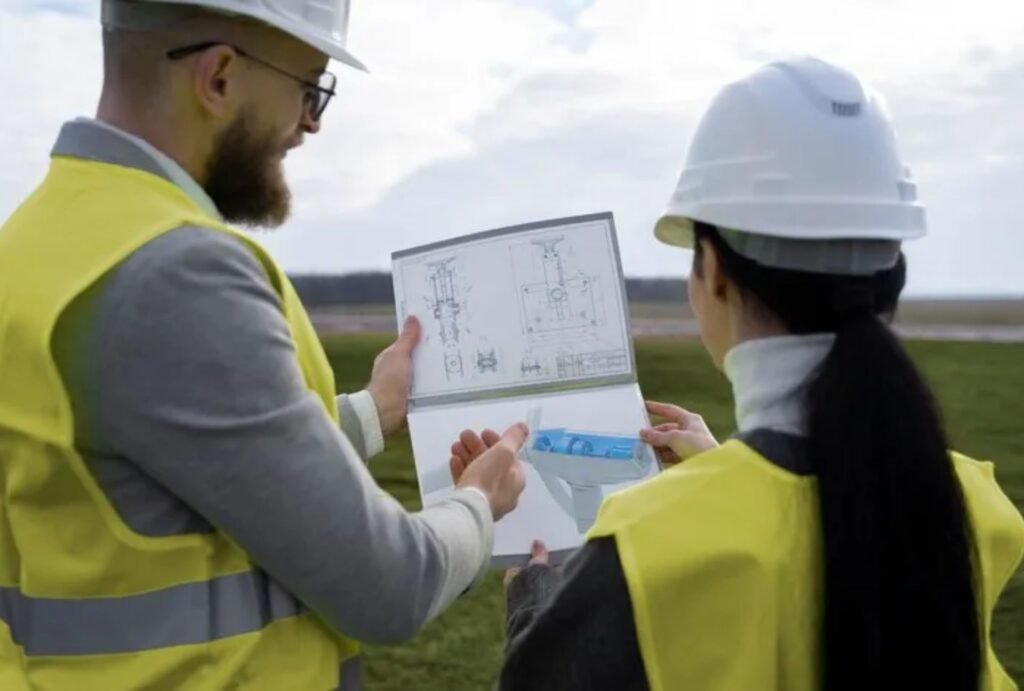
FAQs: About How To Hire A Qualified Quantity Surveyor In NZ
What is a quantity surveyor, and why do I need one?
A quantity surveyor (QS) is a construction cost expert who helps with budgeting, cost estimation, contract management, and financial planning. They ensure projects stay within budget and meet financial regulations.
How do I find a qualified quantity surveyor in New Zealand?
Look for QS professionals accredited by the New Zealand Institute of Quantity Surveyors (NZIQS) or RICS. You can find them through industry directories, professional associations, referrals, or job platforms like LinkedIn and TradeMe Jobs.
What qualifications should a quantity surveyor in NZ have?
A qualified QS typically holds a Bachelor’s degree in Quantity Surveying, Construction Management, or a related field. Membership with NZIQS or RICS ensures they meet industry standards.
How much does a quantity surveyor cost in NZ?
The cost depends on the project size, complexity, and the QS’s experience. They may charge hourly rates ($100–$250 per hour), fixed fees, or a percentage of the project cost (1-5%). Always request a quote beforehand.
What questions should I ask before hiring a quantity surveyor?
Ask about their experience with similar projects, pricing structure, approach to cost management, contract negotiation skills, and dispute resolution methods. Also, request references from past clients.
Can a quantity surveyor help reduce construction costs?
Yes! A QS helps optimize your budget by accurately estimating costs, identifying potential savings, preventing budget overruns, and negotiating better contract terms with suppliers and contractors.
Do I need a quantity surveyor for small projects?
While large-scale developments benefit the most from a QS, even small projects (like home renovations) can benefit from their cost-planning and budgeting expertise, ensuring financial efficiency.
How do I verify a quantity surveyor’s credentials?
Check if they are registered with NZIQS or RICS, review their portfolio and client testimonials, and ask for case studies of past work to verify their expertise and experience.
What are the biggest mistakes people make when hiring a quantity surveyor?
Common mistakes include hiring based on price alone, failing to check credentials, not reviewing past work, unclear project scope, and ignoring communication skills. Choose a QS with a strong track record.
Where can I get started with hiring a quantity surveyor in NZ?
Begin by researching professionals on NZIQS, LinkedIn, or local construction firms, request multiple quotes, conduct interviews, and choose a QS who aligns with your project needs and budget.
Conclusion
Hiring a Qualified and Experienced Quantity Surveyor (QS) in New Zealand is one of the smartest investments you can make for your construction project. From accurate cost estimation to budget control and contract negotiation, a skilled QS ensures your project runs smoothly while preventing costly mistakes. To make the best choice, take the time to research potential candidates, verify their credentials, review past projects, and ask the right questions before hiring. Remember, the cheapest option isn’t always the best—prioritize expertise, industry knowledge, and strong communication skills. Whether you’re working on a residential build, commercial development, or renovation, having a trusted QS by your side can save you time, money, and stress.
